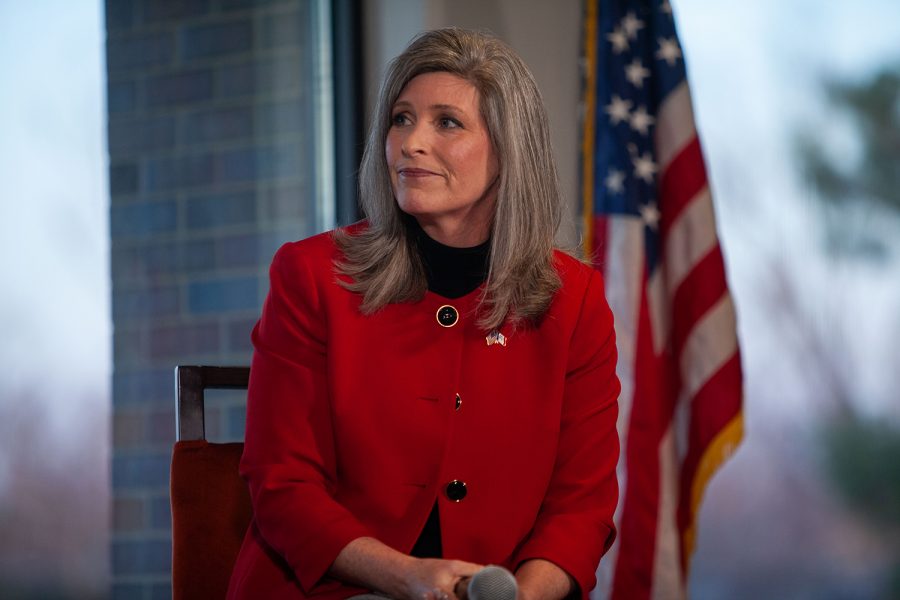Sen. Ernst and Sen. Gillibrand aim to change how military sexual assault allegations are handled
In response to the killing and assault of soldier Vanessa Guillen, Sen. Joni Ernst said she knew it was time to change how soldiers are disciplined when accused of sexual assault.
U.S. Sen. Joni Ernst (R-Iowa) speaks to a crowd on Thursday, April 1 at an Iowa GOP regional reception in Cedar Rapids at the Elmcrest Country Club. Ernst talked about her time as a child wearing bread bags.
September 24, 2021
Sen. Joni Ernst, R-Iowa, and Sen. Kirsten Gillibrand, D-New York, have introduced bipartisan legislation to combat military sexual assault policies. The goal of the, bill is to change how allegations sexual assault are investigated by the military. The Senate bill has 65 cosponsors, and a companion bill in the House has 215.
Both senators are on the Armed Services Committee, and Ernst is a veteran and sexual assault survivor.
Ernst and Gillibrand are requesting that accused soldiers are tried with an unbiased prosecutor, rather than the current system, where allegations of sexual assault go through the chain of command.
“We’ve given the military enough time. Now it’s time to be very aggressive about the moves that we’re making,” Ernst said during a panel hosted by POLITICO.
RELATED: Sen. Chuck Grassley will seek an eighth term
Ernst was hesitant to propose any bills because she wanted to see if any pre-existing bills like, Defense Authorization Act, would be able to make a change.
“A turning point for me was when we saw the case of Vanessa Guillen at Fort Hood, Texas, and this was an extreme failure of the chain of command to recognize that a young woman was being so severely harassed, that it ended in her murder,” Ernst said.
Gillibrand has heard stories from soldiers who were sexually assaulted and they tried reporting, but were disbelieved.
“Eight years ago, the average estimate for cases of sexual assault was about 20,000. Now, literally, almost a decade later, it’s still 20,000 estimated cases by the U.S. military,” Gillibrand said. “About 62 percent of the people who come forward are retaliated against. They perceive peer to peer or professional or administrative retaliation.”
The number of cases headed toward trials is decreasing, which is concerning, said Gillibrand. She has listened to survivors who say that the only way to change the trajectory these cases are going is to remove it from the chain of command.
Gillibrand says the bill will change who gets prosecuted and what the outcomes of those cases will be.
“That sends a message to the military that these crimes will not be tolerated,” Gillibrand said.














